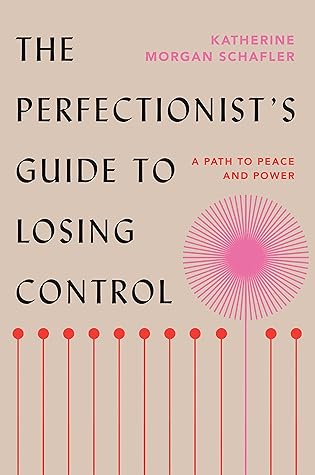More on this book
Community
Kindle Notes & Highlights
Read between
January 9 - January 19, 2024
You start by being honest with yourself about who you are.
because her interests stay within the realm of what is acceptable for women to be publicly ambitious about.
Your problem is that you’re not being your full self.
Investing in a pathologized version of who you are is a profoundly unnecessary use of your energy.
Intense perfectionists are effortlessly direct and maintain razor-sharp focus on achieving their goal. Left unchecked, their standards can go from high to impossible, and they can be punitive with others and themselves for not achieving impossible standards.
Parisian perfectionists possess a live-wire understanding of the power of interpersonal connection and hold a strong capacity for empathy. Left unchecked, their desire to connect to others can metastasize into toxic people-pleasing.
Messy perfectionists effortlessly push through the anxiety of new beginnings, are superstar idea generators, adapt to spontaneity well, and are naturally enthusiastic. Left unchecked, they struggle to stay focused on their goals, ultimately spreading their energy
“I need something to be different about this moment before I can be satisfied.”
We tend to conflate external reliability with inner strength; that’s a mistake.
Parisian perfectionists want to be perfectly liked, an “achievement” other types of perfectionists don’t prize.
Procrastinator perfectionists wait for the conditions to be perfect before starting.
When a procrastinator perfectionist brings awareness to the anticipatory loss fueling their hesitation, aligns themselves with support, and stops wasting energy critiquing other people who are trying, they’re an absolute force.
The antagonistic energy behind intense perfectionism isn’t always existential; intense perfectionists can be provocative.
Intense perfectionists want a perfect outcome.
Sometimes they’ll direct their anger outwardly, but most often, they turn it inward—the
People around intense perfectionists who haven’t yet learned how to manage their perfectionism are susceptible to becoming collateral emotional casualties. In the same way that a joyful person can contagiously lift the mood of a room, intense perfectionists can exude a powerfully dense energy for people in their orbit.
More than any other type, intense perfectionists rely on the outcome of a process to define their sense of success.
Unless they hit their goal, it was all for nothing.
Perfectionism is a phenomenon, not a disorder. The larger culture is more focused on dysfunctional iterations of perfectionism because the mental health industry is built on an illness model; we’re more focused on dysfunctional iterations of every psychological experience.
you’re perfect.
Something considered perfect is that which is completely done;
You don’t earn your wholeness; you’re born with it.
You are the song.
The absence of cheerfulness is not a disorder.
You’re adapting to the most authentic version of yourself.
what they’re really driven by is the avoidance of failure—two
when you learn to extract meaning from the process instead of the outcome, you can’t fail.
Maladaptive perfectionists don’t chase success, they run from failure. Maladaptive perfectionists are driven to avoid failure because maladaptive perfectionism is driven by shame avoidance.
Research indicates that adaptive perfectionism is positively correlated with adopting a growth mindset.[22]
You don’t heal by changing who you are; you heal by learning how to be yourself in the world.
If you’re lucky, you won’t be able to settle for someone else’s version of success, nice and likable as it may be.
“Don’t worry, balance doesn’t exist.”
to be alive and engage with life, not to sequester yourself behind portion-controlled aliveness and call it balance.
Among a litany of private sufferings we don’t allow men to even begin to feel, let alone express, men suffer from being unchallenged in their unbridled response to perfectionism.
“Being a man” calls for a blankness that doesn’t fit the rich sensitivity, humor, creative power, abiding compassion, intelligence, and beauty of men.
Anyone who’s raising a little boy will tell you that this one is the sweetest boy who ever existed. All that kindness, affection, and curiosity that so readily bursts out of little boys’ hearts is exactly what men are taught...
This highlight has been truncated due to consecutive passage length restrictions.
We pretend men are fine. Men are not fine. They’re not sitting high atop their patriarchy thrones laughing down at everyone else. They’re teetering on the corner inch of the fictitious gender binary, trying not to fall off a very real cliff.
They quit. Balance isn’t real; it doesn’t exist. It’s just an idea. Balance is not possible in practical application due to issues such as time and reality.
Reinforcing the tempering of women’s expression of power is billed as “finding balance,” an instruction overwhelmingly directed towards women, not men.
The implicit message behind the word “perfectionist” is: you’re doing too much.
Do not allow your ambition to be pathologized. Refuse to apologize for or disguise your insatiable desire to excel. Reject entirely the notion that you need to be fixed. Reclaim your perfectionism now.


